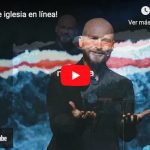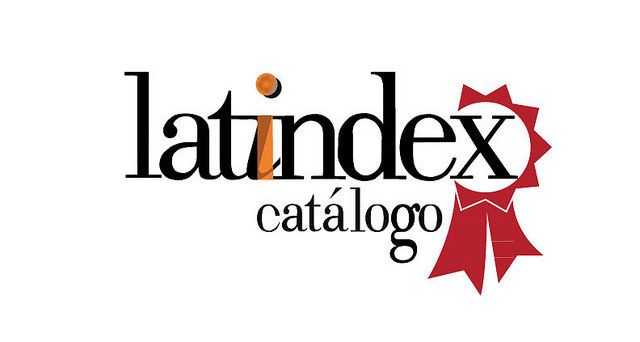Postdenominational Christianity and the Coronavirus
Religious Field and Innovation in Mexico and the United States
DOI:
https://doi.org/10.29340/en.v5n9.201Keywords:
Emerging Christianity, Coronavirus, Postdenominational Churches, Religious innovation, Mexico, United StatesAbstract
Postdenominational Christianity has considerable changes in the styles of worship and in the organizational congregational structure, transforming the way in which their devotees relate to their beliefs, with the world around them and the way in which they experience Christianity. This article presents examples of Postdenominational Churches in Mexico and the United States in the context of social distancing as a preventive measure against the COVID-19 pandemic. Using these examples, we observe the innovation in the religious field that Postdenominational Churches represent and how they not only have online resources, but in certain cases, they are what we call semi-virtual Churches.
Downloads
References
Anderson, Allan (2004). An Introduction to Pentecostalism: Global Charismatic Christianity. Cambridge: Cambridge University Press.
Bárcenas, Karina (2014). “Iglesias y grupos espirituales para la diversidad sexual y de género en México: intersecciones sobre religión y género”. Revista de Estudios Sociales, núm. 49, pp. 33-46. https://doi.org/10.7440/res49.2014.03 DOI: https://doi.org/10.7440/res49.2014.03
Bastian, Jean-Pierre (2013). Protestantismos y modernidad latinoamericana: historia de unas minorías religiosas activas en América Latina. México: Fondo de Cultura Económica.
Betim, Felipe et al. (2020, 21 marzo). “Hostias en la mano, infectados en misa y el diablo: las religiones frente a la pandemia en América Latina”. El País. Recuperado de https://elpais.com/sociedad/2020-03-21/hostias-en-la-mano-infectados-en-misa-y-el-diablo-las-religiones-frente-a-la-pandemia-en-america-latina.html, consultado el 17 de enero de 2022.
Bowler, Kate (2018). Blessed: A History of the American Prosperity Gospel. Oxford: Oxford University Press.
Bryson, John, Lauren Andres y Andrew Davies (2020). “covid‐19, Virtual Church Services and a New Temporary Geography of Home”. Tijdschrift voor economische en sociale geografie, vol. 111, núm. 3, pp. 360-372. https://doi.org/10.1111/tesg.12436 DOI: https://doi.org/10.1111/tesg.12436
Campbell, Heidi (2020). Religion in Quarantine: The Future of Religion in a Post-Pandemic World. College Station: Digital Religion Publications.
Creech, Joe (1996). “Visions of Glory: The Place of the Azusa Street Revival in Pentecostal History”. Church History, vol. 65, núm. 3, pp. 405-424. https://doi.org/10.2307/3169938 DOI: https://doi.org/10.2307/3169938
Conger, Kate, Jack Healy y Lucy Tompkins (2020, 10 julio). “Churches Emerge as Major Source of Coronavirus Cases”. The New York Times. Recuperado de: https://www.nytimes.com/2020/07/08/us/coronavirus-churches-outbreaks.html, consultado el 17 de enero de 2022.
Cooperman, Alan (2020, 17 agosto). “Will the coronavirus permanently convert in-person worshippers to online streamers? They don’t think so”. Pew Research Center. Recuperado de https://www.pewresearch.org/fact-tank/2020/08/17/will-the-coronavirus-permanently-convert-in-person-worshippers-to-online-streamers-they-dont-think-so/, consultado el 17 de enero de 2022.
Cox, Harvey (2009). Fire from Heaven: The Rise of Pentecostal Spirituality and the Reshaping of Religion in the 21st Century. Cambridge: Da Capo Press.
Deverell, Garry (2005). “Uniting in Worship? Proposals Towards a Liturgical Ecumenics”. Uniting Church Studies, vol. 11, núm. 1, pp. 21-36.
Dow, James (2005). “The Expansion of Protestantism in Mexico: An Anthropological View”. Anthropological Quarterly, vol. 78, núm. 4, pp. 825-851. https://doi.org/10.1353/anq.2005.0054 DOI: https://doi.org/10.1353/anq.2005.0054
Fernandes, Nuno (2020). “Economic effects of coronavirus outbreak (covid-19) on the world economy”. iese Business School Working Paper No. WP-1240-E. https://doi.org/10.2139/ssrn.3557504 DOI: https://doi.org/10.2139/ssrn.3557504
García Acosta, Virginia (2020). “La antropología bajo el ojo de la covid-19” [Entrevista realizada por Renée de la Torre y Olivia Teresa Ruiz Marrujo]. Encartes, vol. 3, núm. 06, pp. 242-246. https://doi.org/10.29340/en.v3n6.198. DOI: https://doi.org/10.29340/en.v3n6.198
Garrard-Burnett, Virginia y David Stoll (1993). Rethinking Protestantism in Latin America. Filadelfia: Temple University Press.
Gatti, Giorgio (2020). “Impact of the 2019–20 Corona Virus Pandemic on Religion”. clio, vol. 6, núm. 8, pp. 19-23.
Gomes, Edson Fernando (2020). “adn Más Vida: la identidad de una iglesia postdenominacional mexicana en crecimiento”. Ciencias sociales y religión/ Ciências sociais e religião, vol. 22. https://doi.org/10.20396/csr.v22i00.13807 DOI: https://doi.org/10.20396/csr.v22i00.13807
Hernández, Alberto y Mary O’Connor (2013). “Migración y conversión religiosa entre los mixtecos de Oaxaca”. Alteridades, vol. 23, núm. 45, pp. 9-23.
Ibarra, Carlos S. (2019). Cristianismo postdenominacional, movimientos emergentes y deconstrucción religiosa en el norte de México (tesis de doctorado). Tijuana: El Colegio de la Frontera Norte.
Kimball, Dan (2003). The Emerging Church: Vintage Christianity for New Generations. Grand Rapids: Zondervan.
Marti, Gerardo (2009). A Mosaic of Believers: Diversity and Innovation in a Multiethnic Church. Bloomington: Indiana University Press. https://doi.org/10.1093/acprof:oso/9780199959884.001.0001 DOI: https://doi.org/10.1093/acprof:oso/9780199959884.001.0001
Marti, Gerardo y Gladys Ganiel (2014). The Deconstructed Church: Understanding Emerging Christianity. Oxford: Oxford University Press. DOI: https://doi.org/10.1093/acprof:oso/9780199959884.001.0001
Medellín, Paola (2020, 12 abril). “Religión y pandemias”. Instituto de Estudios Urbanos. Recuperado de http://ieu.unal.edu.co/medios/noticias-del-ieu/item/religion-y-pandemias, consultado el 17 de enero de 2022.
Meyer, Birgit (2018). “A estética da persuasão: as formas sensoriais do cristianismo global e do pentecostalismo”. Debates do ner, vol. 19, núm. 34, pp. 13-45. https://doi.org/10.22456/1982-8136.89943 DOI: https://doi.org/10.22456/1982-8136.89943
Miller, Donald E. (1998). “Postdenominational Christianity in the Twenty-First Century”. The annals of the American Academy of Political and Social Science, vol. 558, núm. 1, pp. 196-210. https://doi.org/10.1177/0002716298558001015 DOI: https://doi.org/10.1177/0002716298558001015
Odgers, Olga y Juan Ruiz (2009). Migración y creencias: pensar las religiones en tiempo de movilidad. Tijuana: El Colegio de la Frontera Norte.
— y Olga Olivas (2018). ¿Dejar las drogas con ayuda de Dios? Experiencias de internamiento en centros de rehabilitación fronterizos. Tijuana: El Colegio de la Frontera Norte.
Placentra Johnston, Margaret (2012). Faith Beyond Belief: Stories of Good People Who Left Their Church Behind. Wheaton: Quest Books.
Ramírez, Daniel (2003, 27-29 de marzo). Migrating Faiths or Transgenic Danger? Pentecostal Growth in Oaxacalifornia [Presentación en conferencia]. Latin American Studies Association Meeting, Dallas, Estados Unidos.
– (2015). Migrating Faith: Pentecostalism in the United States and Mexico in the Twentieth Century. Chapel Hill: unc Press Books.
Robeck, Cecil M. (2017). The Azusa Street Mission and Revival: The Birth of the Global Pentecostal Movement. Nashville: Thomas Nelson.
Rocha, Cristina (2017). “‘The Come to Brazil Effect’: Young Brazilian’s Fascination with Hillsong”, en Tanya Riches y Tom Wagner (ed.), The Hillsong Movement Examined. Londres: Palgrave Macmillan y Cham, pp. 125-14. https://doi.org/10.1007/978-3-319-59656-3_7 DOI: https://doi.org/10.1007/978-3-319-59656-3_7
Rouse, Stella M. y Ashley D. Ross (2018). The Politics of Millennials: Political Beliefs and Policy Preferences of America’s Most Diverse Generation. Ann Arbor: University of Michigan Press. DOI: https://doi.org/10.3998/mpub.9526877
Serrão, Rodrigo y João Chaves (2020). “Immigrant Evangelicalism in the covid-19 Crisis: Reactions and Responses from Brazilian Evangelical Churches in Florida”. International Journal of Latin American Religions, vol. 4, pp. 1-15. https://doi.org/10.1007/s41603-020-00111-5 DOI: https://doi.org/10.1007/s41603-020-00111-5
Shibley, Mark (1996). Resurgent Evangelicalism in the United States: Mapping Cultural Change Since 1970. Columbia: University of South Carolina Press.
Stephen, Lynn (2007). Transborder Lives: Indigenous Oaxacans in Mexico, California and Oregon. Durham: Duke University Press. https://doi.org/10.1515/9780822389965 DOI: https://doi.org/10.1515/9780822389965
Strauss, William y Neil Howe (2000). Millennials Rising: The Next Great Generation. Nueva York: Vintage Books.
Subsecretaría de Desarrollo Democrático, Participación Social y Asuntos Religiosos (2020, 15 junio). Comunicado a las iglesias, agrupaciones y asociaciones religiosas. Recuperado de http://www.asociacionesreligiosas.gob.mx/work/models/AsuntosReligiosos/Documentos/Imagenes/comunicado.pdf , consultado el 17 de enero de 2022.
Torales, Julio, Marcelo O’Higgins, João Castaldelli-Maia y Antonio Ventriglio (2020). “The Outbreak of covid-19 Coronavirus and its Impact on Global Mental Health”. International Journal of Social Psychiatry, vol. 66, núm. 4, pp. 317-320. https://doi.org/10.1177/0020764020915212 DOI: https://doi.org/10.1177/0020764020915212
Torre, Renée de la, Cristina Gutiérrez y Alberto Hernández (2020). “Religious Reconfiguration in Mexico: Beliefs and Practices National Survey, 2016”. Social Compass, vol. 67, núm. 3, pp. 349-371. https://doi.org/10.1177/0037768620922122 DOI: https://doi.org/10.1177/0037768620922122
Winograd, Morley y Michael Hais (2011). Millennial Momentum. How a New Generation Is Remaking America. Nuevo Brunswick: Rutgers University Press. https://doi.org/10.36019/9780813552286 DOI: https://doi.org/10.36019/9780813552286

Published
Issue
Section
License
Copyright (c) 2022 Encartes

This work is licensed under a Creative Commons Attribution-NonCommercial 4.0 International License.
Aviso de derechos de autor
- Los autores/as conservan los derechos de autor y ceden a la revista el derecho a la primera publicación con el trabajo registrado con la licencia de atribución Creative Commons, que permite a terceros utilizar lo publicado siempre que mencionen la autoría del trabajo y a la primera publicación en esta revista
- Los autores/as pueden realizar otros acuerdos contractuales independientes y adicionales para la distribución no exclusiva de la versión del artículo publicado en esta revista (por ej. Incluirlo en un repositorio institucional o publicarlo en un libro) siempre que indiquen claramente que el trabajo se publicó por primera vez en esta revista.
El material puede ser copiado, distribuido, comunicado, ejecutado públicamente. Se pueden hacer obras derivadas de él. No se puede utilizar para fines comerciales. Se debe reconocer y citar la obra de la forma en que tú especifiques.









